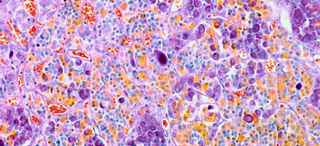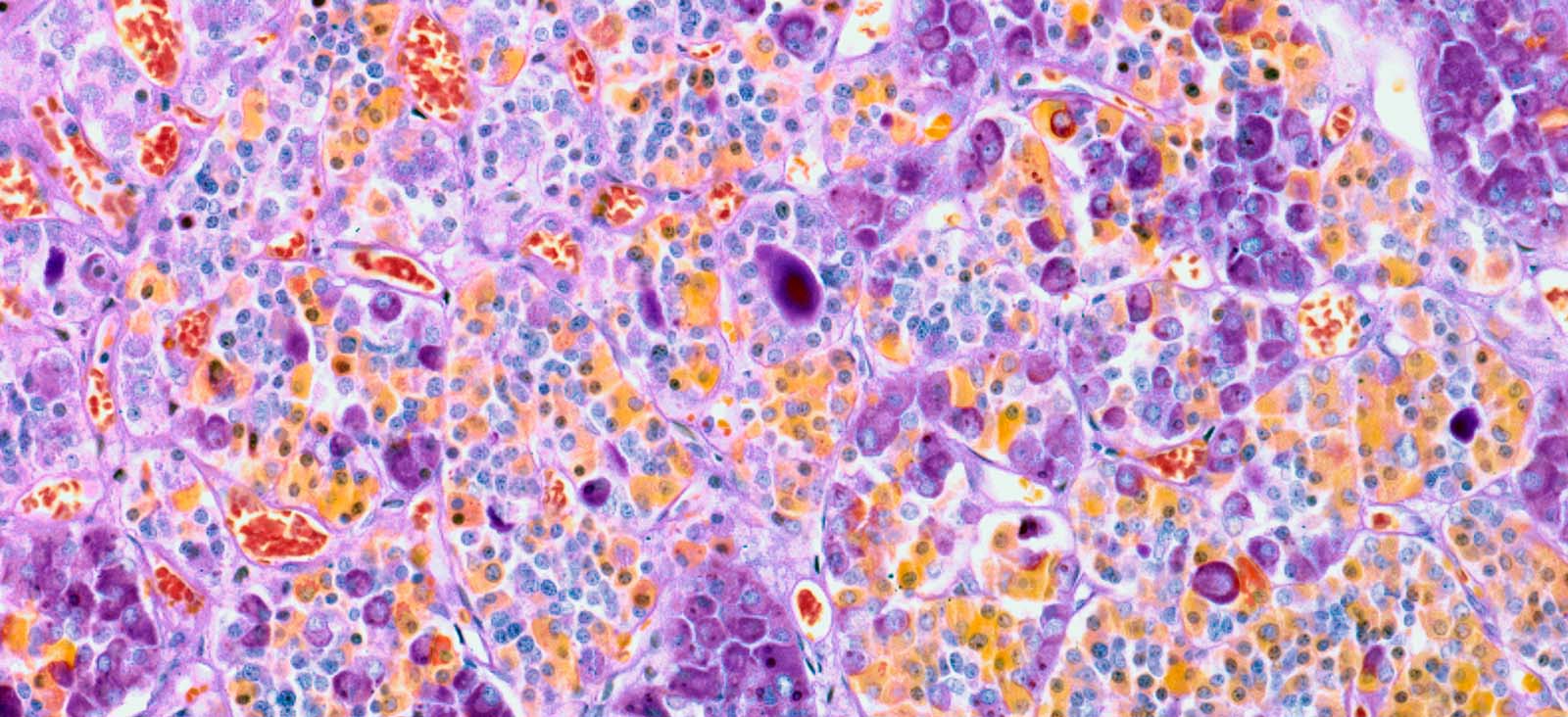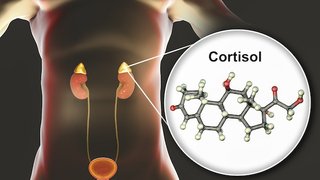Causes of Cushing Syndrome
Cushing syndrome can be caused by natural factors within the body (endogenous) as well as by the use of synthetic corticosteroid medications (exogenous).
The most common cause of Cushing syndrome is exogenous, brought about by taking corticosteroid medications such as prednisone. These drugs are used to treat inflammatory disorders such as asthma and rheumatoid arthritis. They are also used to suppress the immune system after an organ transplant.
If a person has extra cortisol in the body and it is not related to corticosteroid medications, then the body is making too much cortisol (endogenous Cushing syndrome). This might happen if one or both of the adrenal glands produces an excessive amount of cortisol, or if the body makes too much of another hormone, called ACTH. ACTH controls the body’s cortisol production.
In some cases, the body might make too much cortisol because of high levels of stress or other medical illness. This is not considered Cushing syndrome.
The following conditions can lead to Cushing syndrome:
Pituitary gland tumor
The pituitary gland is located at the base of the brain. It makes ACTH, along with other hormones. A pituitary tumor can produce too much ACTH, which is a hormone that tells the adrenal glands to make more cortisol.
When Cushing syndrome is due to a pituitary tumor, it is called Cushing disease. This kind of pituitary gland tumor, called a pituitary adenoma, is not cancer. Pituitary cancer is very rare. A pituitary gland tumor is the most common reason for endogenous Cushing syndrome.
Adrenal gland disease
Adrenal gland disorders can cause the glands to make too much cortisol. The most common is a tumor called an adrenal adenoma. It is not cancer.
However, rare cancerous tumors in the adrenal glands can cause Cushing syndrome, too. These tumors are called adrenocortical carcinomas. Occasionally, enlargement of both adrenal glands can lead to Cushing syndrome.
Tumors that secrete ACTH
Most tumors that produce ACTH originate in the pituitary gland. Rarely, a tumor develops in an organ that normally does not make ACTH.
These tumors, sometimes called ectopic tumors, are usually found in the lungs, pancreas, thyroid gland, or thymus gland.
Symptoms of Cushing Syndrome
People with Cushing syndrome can experience a variety of symptoms depending on the levels of excess cortisol. The signs and symptoms of Cushing syndrome can be vague. In addition, many people have these symptoms and they do not have Cushing syndrome.
Common signs and symptoms include:
- Weight gain
- Fatty tissue deposits, particularly around the midsection and upper back, in the face (moon face), and between the shoulders (buffalo hump)
- Wide purple stretch marks (striae) on the skin of the abdomen, thighs, breasts, and arms
- Frequent infections
- Thinning, fragile skin that bruises easily
- Muscle loss and weakness
- Bone loss
- Fatigue
- Headaches
- Sleep problems
- Depression, anxiety, and irritability
- Acne
A woman with Cushing syndrome may notice thicker or more visible hair on her body and face. Menstrual periods might not be regular anymore, or they might stop.
A man with Cushing syndrome may notice lower sexual desire and erectile dysfunction.
If it is not treated, Cushing syndrome can lead to other medical concerns over time, such as:
- High blood pressure
- Diabetes
- Serious and life-threatening infections
- Muscle loss
- Broken bones due to bone loss (osteoporosis)
Diagnosing Cushing Syndrome
Cushing syndrome usually comes on slowly and can be difficult to diagnose. Many of its signs and symptoms look the same as other diseases.
A diagnosis usually requires multiple tests, including the ones listed below:
- Blood test. People with suspected Cushing syndrome have their cortisol levels measured the morning after taking a late-night dose of dexamethasone, a synthetic steroid. Normally, dexamethasone causes cortisol to drop to a very low level, but in people with Cushing syndrome, this doesn’t happen.
- Urine test. Cortisol levels can also be measured in urine that has been collected over a 24-hour period.
- Saliva test. Your cortisol level changes during the day. A sample of saliva is collected late at night in a small plastic container and sent to the laboratory for analysis. In healthy people, cortisol levels are very low during this period of time. In contrast, people with Cushing syndrome have high levels.
- Imaging tests. A computed tomography (CT) scan or a magnetic resonance image (MRI) scan can examine your pituitary and adrenal glands. These scans can find abnormalities, such as tumors, that could lead to Cushing syndrome.
Treatment of Cushing Syndrome
Treatment for Cushing syndrome depends on what is causing too much cortisol in the body.
Exogenous Cushing syndrome goes away after the person stops taking the corticosteroid medications. A doctor will determine when it is appropriate to slowly decrease and eventually stop using the corticosteroid medications, which need to be discontinued gradually.
Surgery
If Cushing syndrome is caused by a tumor, surgery can often remove it. This is usually the first step in treatment. Although surgery is usually successful, it does not always cure Cushing syndrome. In those cases where surgery is unsuccessful, you might need other treatments such as medications that lower cortisol or even radiation therapy to destroy remaining tumor tissue.
After surgery, the adrenal glands might not work as they should right away. Because of this, patients take medications to replace their cortisol. Over time the adrenal glands usually go back to making the correct amount of cortisol, meaning it is likely patients can eventually taper off their use of the replacement drugs. This process can take up to a year or longer.
Removing adrenal glands
Some tumors that secrete ACTH are too small to be found and removed. In those cases, treatment for Cushing syndrome involves removing both adrenal glands. This procedure is called bilateral adrenalectomy. Patients might need this surgery if they have severe Cushing syndrome and other treatments have not worked.
If the adrenal glands are removed, the patient will need to take hormone replacement medications for the rest of his or her life. The medication gives the body the hormones the adrenal glands would normally make.
Radiation therapy
If a surgeon cannot remove all of the pituitary tumor, the patient might need radiation therapy after surgery. This treatment can destroy what is left of the tumor. If it is not possible to take out any of the tumor, the patient might receive radiation therapy alone.
Medications
Medications might be part of your treatment plan for Cushing syndrome. Patients might receive medication before surgery if Cushing syndrome is very severe. The doctor might also recommend medication before surgery to improve signs and symptoms and to lower the risks of surgery.





